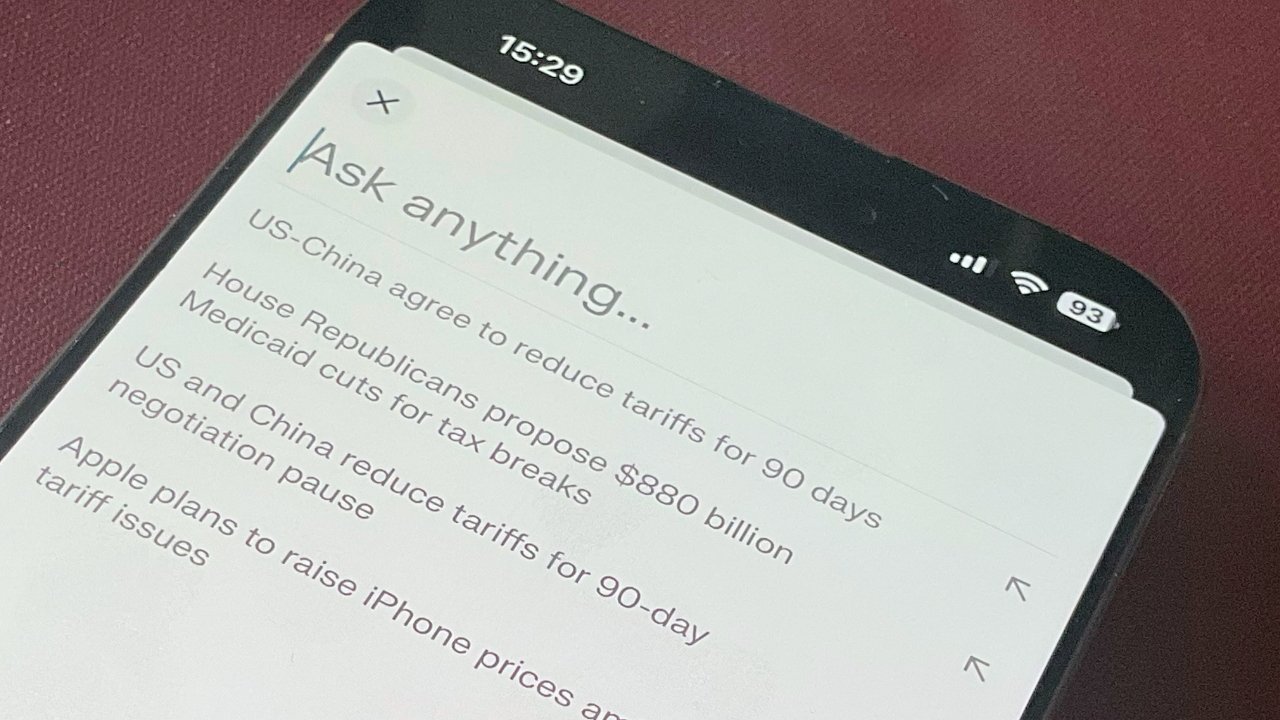Investment firm Morgan Stanley says that the ever-increasing growth of Apple’s Services could be over, as search and AI are either a threat — or a boon.
After Apple’s Eddy Cue spoke in court about Google search and the future of the iPhone, all reporting focused on the latter. But analysts at Morgan Stanley suggest that Cue was really very deliberately aiming to help keep the deal with Google going.
According to a note to investors seen by AppleInsider, the supposition is that Cue intentionally raised the claim that the number of searches via Safari and Google had dropped. He also specifically revealed that Apple was talking with alternative partners such as Perplexity.
What Cue may really have been aiming at was to paint the Apple/Google deal as just one more thing, not something that helps Google be an effective monopoly. It’s not known whether he convinced the judge, but he convinced enough investors that Google’s share price dropped, and the company issued a rare and terse rebuttal.
Cue losing sleep over the Google deal
Morgan Stanley points to a further comment by Cue where he said that he the prospect of losing the Google deal had given him sleepless nights. This, argues the investment firm, shows that the deal is crucial.
But from there, the Morgan Stanley analysts do not have one opinion about what will happen next — they have two. Rather than laying out a prediction for what happens if Apple does or doesn’t lose the Google search deal, it instead equally examines the positive and negative sides of the deal.
Overall, Morgan Stanley has retained its Apple price target of $235. But it argues the potential downsides could lead to a bear case of $153 — or a bull case of $284.
What could lead Apple to lose out
The key part of this bear case is that Apple loses its deal with Google, and so is out around $20 billion annually. It also has to replace or at least supplant Google search, which is where the talk of using AI tools such as Perplexity comes in.
Only, right now Apple just keeps Google as the default and watches as the money rolls in. Google runs that search business and does as efficiently as only a behemoth can.
Morgan Stanley suggests that Apple would not be able to monetize AI-based search remotely well enough to get it the revenues it currently has.
Then where Google has profited from being baked in to iPhones as the default, AI search tools are different. Independently of Apple, Morgan Stanley says that the figures of monthly active users across AI platforms is already growing rapidly.
It’s likely, then, that tools such as ChatGPT or Perplexity simply won’t need Apple for business growth. If they do not have to rely on Apple, they won’t.
Plus if they do choose to rely on Apple, there’s then the issue of how users might pay for such AI-based search. If those services bill subscribers directly, Apple will be cut out.
As well as positing that Apple loses the Google deal, though, the investment firm’s analysts say this worst-case situation relies on one more supposition. The supposition that Apple’s own AI efforts are unsuccessful.
How Apple could win
The opposite possibility, the ultimate bull case, obviously begins with Apple keeping the Google deal. Morgan Stanley argues that Google doesn’t pay Apple $20 billion for nothing — being in front of every iPhone user is worth the money.
That access to users is also worth it to AI search firms, and Apple controls it. So Apple remains the gatekeeper, whether it chooses to switch from Google to an AI search firm, or it keeps both.
Then Apple is hardly inactive in AI. It’s possible that Apple Intelligence could become how all iPhone users perform any searches at all.
More, Morgan Stanley believes that investors are not giving Apple sufficient credit for its long-term projects, and its positioning in highly lucrative markets. They say Apple has a strong presence across AI, home, health, and more, and each could become multi-trillion dollar markets.
Plus previous surveys by Morgan Stanley suggest that iPhone users would, on average, be willing to pay $9/month for Apple Intelligence features. Apple has shown no signs of turning Apple Intelligence into a subscription service, but other analysts have predicted that ultimately it will.
What really happens next
This investor note is unusual in how it lays out two opposing possibilities instead of attempting to assess which is the most likely. That’s because Morgan Stanley says that it is simultaneously true that Apple’s Services business is vulnerable, and yet that investors are over-estimating the problems.
The factors that will move Apple in one director or the other clearly center on whether it is able to retain its deal with Google. However, beyond that, Morgan Stanley is also waiting for:





